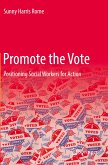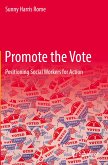This timely book on social work and antisemitism fills an important gap in social work education and in the profession. The ethics and framework of the social work profession demand that it confronts oppression and prejudice while working for a socially just society. However, education on antisemitism is seldom included in social work curriculum or in diversity, equity, and inclusion (DEI) programs. This text addresses this need for education and intervention, and includes a teaching guide for use in social work curriculum as well as social work practice.
Antisemitism, hatred and discrimination against Jewish people and Jewish institutions, is perhaps the oldest form of oppression. Throughout history, as with other oppressions, myths and stereotypes to substantiate antisemitism were developed. More recently, however, antisemitism has been increasing steadily across the globe. Combatting and dismantling it is critical for both Jewish people and institutions, the socialwork profession, and for society.
In the book, the authors discuss antisemitism's history, the role of the Holocaust, contemporary manifestations of antisemitism, and its impact on individuals and societies. Among the topics covered are:
Introduction: Human Rights, Social Justice, and Social WorkPalestine, Israel, and ZionismContemporary AntisemitismAntisemitism and Mental HealthAntisemitism: A Guide for Teaching and Social Work Practice
Social Work and Antisemitism: Issues and Interventions offers a foundation for combatting antisemitism and addresses the need for social work involvement. The book can be used as a primary or secondary text for courses that cover diversity, human rights, human development, ethnicity, oppression, and mental health in Bachelor- or Masters-level programs in schools of social work. In addition, the book can be used in other programs, such as DEI, or by other disciplines interested in learning about and educating about antisemitism.
Antisemitism, hatred and discrimination against Jewish people and Jewish institutions, is perhaps the oldest form of oppression. Throughout history, as with other oppressions, myths and stereotypes to substantiate antisemitism were developed. More recently, however, antisemitism has been increasing steadily across the globe. Combatting and dismantling it is critical for both Jewish people and institutions, the socialwork profession, and for society.
In the book, the authors discuss antisemitism's history, the role of the Holocaust, contemporary manifestations of antisemitism, and its impact on individuals and societies. Among the topics covered are:
Introduction: Human Rights, Social Justice, and Social WorkPalestine, Israel, and ZionismContemporary AntisemitismAntisemitism and Mental HealthAntisemitism: A Guide for Teaching and Social Work Practice
Social Work and Antisemitism: Issues and Interventions offers a foundation for combatting antisemitism and addresses the need for social work involvement. The book can be used as a primary or secondary text for courses that cover diversity, human rights, human development, ethnicity, oppression, and mental health in Bachelor- or Masters-level programs in schools of social work. In addition, the book can be used in other programs, such as DEI, or by other disciplines interested in learning about and educating about antisemitism.








